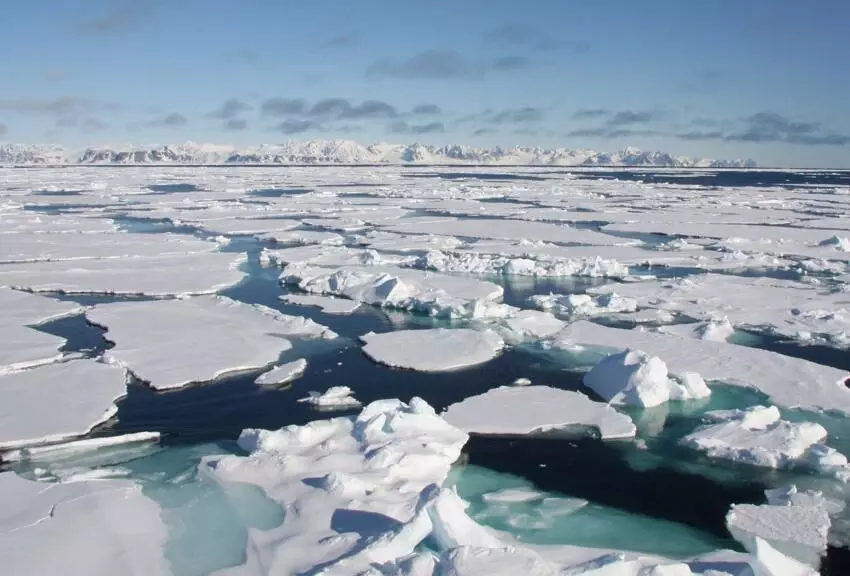
Earth loses ice at a devastating rate of 1.3 trillion per year, finds new study
text_fieldsImage credit: Eva Therese Jenssen/UNIS.
The world's ice is melting at an alarming record rate, according to a study published by the European Space Agency (ESA) on Monday.
The researchers at the University of Leeds in the UK found that a total of 28 trillion tons of snow melted worldwide and the sea level rose by 3.46 cm between 1994 and 2017, according to the study published in The Cryosphere.
In the 1990s, the world experienced an annual loss of 0.8 trillion tons of ice and 1.2 trillion tons by 2017. The authors said that if trillion tons of ice were taken in the form of a cube, it would be higher than Mount Everest and that people on the coast will be heavily affected by the end of this century.
The loss of sea ice which reduces the earth's reflective surface is another problem as it increases the impact of global warming. "Ice sheets are now tracking the worst climate warming scenarios," the study's lead author Thomas Slater said in a statement.
Meanwhile, the rate of melting is increasing as the atmosphere and oceans that get warm though the sources of the warm water are unclear. Scientists believe climate change has been altering the ocean currents.
"As sea ice shrinks, more solar energy is absorbed by the oceans and the atmosphere, leading to arctic warming faster than anywhere else on the planet," said Isabel Lawrence, co-author of the study.
ESA researchers analyzed global satellite data of the last few decades with ground studies of the world's 2,15,000 mountain glaciers and also the Greenland and Antarctic ice sheets, Arctic and Antarctic sea ice.
























